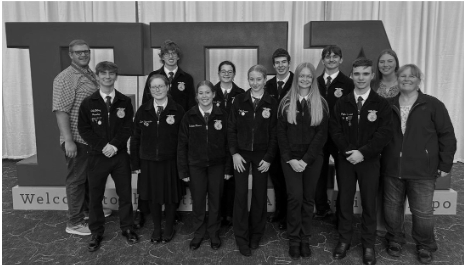Where are the meats?
Proposed reform allows farmers to combat recent meat shortages
October 2, 2020
At the start of the pandemic, meat shortages swept through grocery stores across the nation. Even before the pandemic struck, the process of getting livestock available to sell to the public took time – lots of it – and slaughtering sessions had to be requested via appointments. When a butcher became backed up, it took even more time to complete the process.
Corona virus flare ups became present in production plants, causing many of them to shut down. This cut off some of the top suppliers to grocery stores around the country. Farmers were struggling, with herds of cattle being raised without a final slaughter destination, thousands of market animals were euthanized.
As shelves continued to remain empty and the health security of food became an increasing concern, families quickly began to reach out to local suppliers, desperately attempting to find reliable sources of meat for a fair price. The problem at hand – the United States criminalizes farmers slaughtering their own animals for market.
In order for meat to be sold locally, it must be transported to a central slaughtering agency and then brought back to sell at the farm store. This process is tedious and extremely time consuming. Many farmers have to travel a couple hundred miles just to get their livestock butchered, creating an insane amount of backlog in the process of bringing meat to the public.
A new legislative action proposed would provide the relief farmers need to bridge the gap between farm to table. The PRIME Act would end USDA restrictions set on farmers butchering and processing their own livestock for sale. The proposed act would allow for states to set their own regulations regarding local meat production practices.
Those who are opposed to the PRIME Act are skeptical of compromising our health, however the USDA has released that they have had zero cases of foodborne illness stemming from locally own butcher shops throughout the nation. Farmers are ensuring they are meeting health protocols to provide their customers with the best sources of food possible.
This reform is exactly what the nation needs, as the agriculture industry continues to be one of the most important aspects of our economy. Access to local and reliable sources of meat would be available to average civilians, creating a more secure and practical food network.
Especially in today’s unprecedented times, consumers have an increased concern for where their food comes from. It is extremely important that as a nation, we work to provide our citizens with the most secure sources of food that we are bringing home to our families.
How much safer can you really get than bringing the livestock from the land in which it was raised on, directly to that favorite little farm store on the corner, where you can hear the best stories of growing up spending every day on the tractor?










